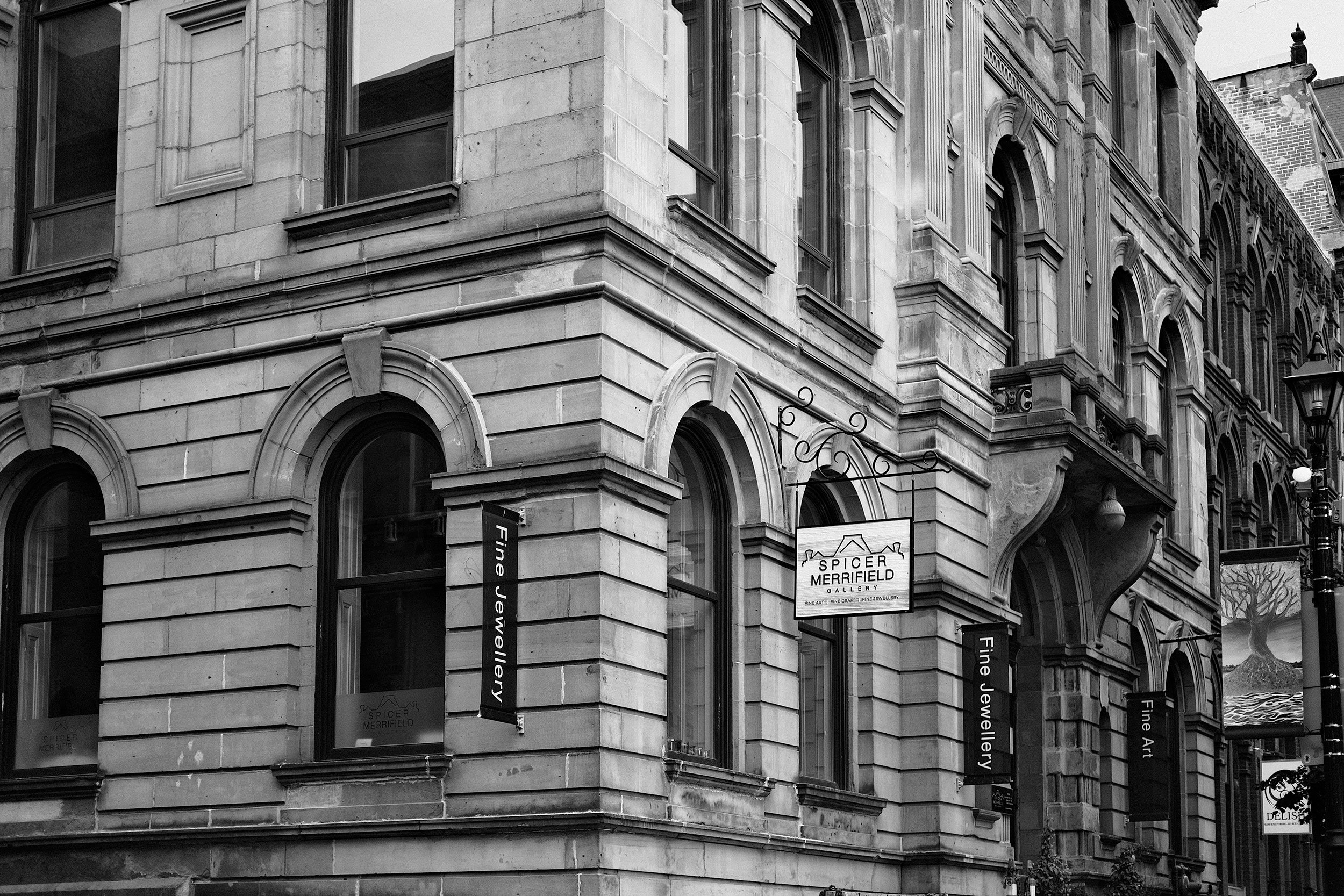Classic Monochrome: An Excellent High Contrast Film Recipe
Spicer Merrifield Gallery, Prince William Street - Saint John
Last month, I completed a personal project focusing on the uptown area of my hometown, Saint John, New Brunswick, in Canada’s oldest incorporated city. For that project, I focused on the uptown revitalization and what I remember growing up in the city.
I wanted to use black and white as the absence of colour can convey a nostalgic throwback to the past and direct the viewer’s attention solely to the composition, shapes, lines, light and shadow. Black and white images often have a timeless quality. In terms of what I wanted in black and white, I wanted minimal noise with a good amount of contrast. That is what led me to this Classic Monochrome film recipe for Fujifilm.
What is the Classic Monochrome Recipe?
Classic Monochrome is a high-contrast black-and-white simulation that provides that intense black-and-white look while not feeling as aged as other black-and-white simulations can. I will note that this recipe is “sharp,” meaning that along with the +1 in sharpness, there is a distinct contrast in the shadows brought on by the increased clarity in the recipe. With the dynamic range of 100, you can get close to blowing out some of the highlights without much effort, but adjusting the exposure compensation does help prevent clipping any of the highlights. The clarity settings may not be for everyone; I believe it could be too much in some situations. I recommend experimenting with a reduced clarity setting if you want to reduce the sharpness or bite of this recipe.
The Classic Monochrome recipe posted in Fuji X Weekly is as follows:
Monochrome
Dynamic Range: DR100
Highlight: +4
Shadow: +2
Noise Reduction: -4
Sharpening: +1
Clarity: +4
Toning: WC +1, MG 0
Grain Effect: Weak, Small
Colour Chrome Effect: Strong
Colour Chrome Effect Blue: Strong
White Balance: Auto, 0 Red & 0 Blue
ISO: Auto, up to ISO 12800
Exposure Compensation: -1/3 to +1/3 (typically)
Summary
To summarize the Classic Monochrome film recipe, I would say it’s an excellent “modern” black-and-white simulation. Deep blacks and bright highlights work well in many cases, and the minimal noise allows a nostalgic look while still looking like a recent capture. I didn’t use it to do any close-ups of people, but I feel this recipe would work well for that type of street photography, especially in environments with harsh light and shadows.


